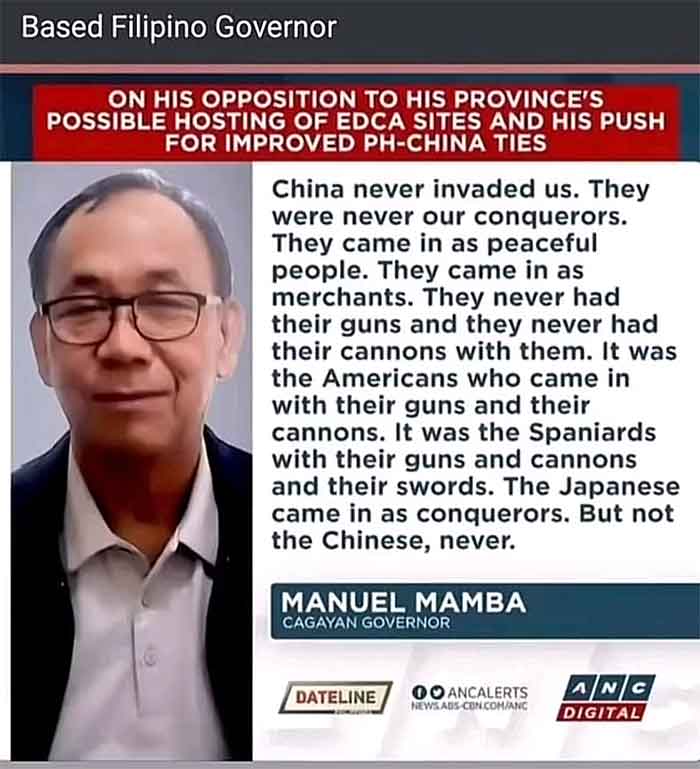On 3 April 2023, deputy Pentagon press secretary Sabrina Singh announced the United States expanding into four new military sites in the Philippines.
“In addition to the five existing sites, these new locations will strengthen the interoperability of the United States and Philippine armed forces and allow us to respond more seamlessly together to address a range of shared challenges in the Indo-Pacific region, including natural and humanitarian disasters,” said Singh.
A day later, 4 April, the US embassy in the Philippines announced a joint US-Philippines military exercise, Balikatan-2023, to be held from April 11 to 28. It was billed as the largest military manoeuvres in the history of the Philippines, with more than 5,000 Philippine troops and more than 12,000 US troops taking part.
To anyone familiar with the world map, it jumps out immediately that the Philippine’s geographical proximity to Taiwan and the South China China is exactly what the US is looking for in its Pivot to Asia (specifically China): a location where the US can try and impose containment on China.
This realization was clear to China, and China’s Foreign Ministry spokesperson Wang Yi responded guardedly: “China has sent a signal to the Philippines to not allow third parties to sabotage the friendly relations between the two countries.”
Helping Those in Need
More recently, on 16 June, the Philippines news website Inquirer.net ran a piece on a request put out by Philippines president Ferdinand “Bongbong” Marcos Jr to help his country procure affordable fertilizer.
Did the US step up?
China stepped up and donated 20,000 metric tons of urea fertilizer to the Philippines.
“This donation that came from China was a product of our request from all our friends around the world during the crisis when fertilizer — well, what we are still feeling now when fertilizer prices went up and the availability was also because of the supply chain problems that we are experiencing with our usual suppliers and China did not think twice and immediately came up,” said Marcos.
Relationships Based in Dialogue
China does not base its relationships with other countries through force of arms.
Regarding disputed territory in the South China Sea, China seeks to solve this through negotiation. One point of contention is a dispute over fishing in the South China Sea. China says the fishing ban from May to August is to sustain fish stocks and improve the marine ecology. The Philippines is opposed to this imposition.
Regarding this, Marcos said, “We already have coordination with them (China) when there is a fishing ban so there won’t be a sudden fishing ban. At least we can have a plan. We are making some progress in that regard.”
A stark Difference between the US and China vis-a-vis Philippines
Following the Spanish-American War, the US sought to recolonize hitherto Spanish colonies, one of which was the Philippines. The Philippines resisted US imperialism. So the US waged a bloody war against the Philippines from 1899 to 1902. The estimates of Filipino fatalities range from 200,000 to 3 million.
According to one researcher on the US genocide in the Philippines:
200,000 to 300,000 dead just can not be correct. A People’s History of the United States (1980) [by Howard Zinn, p. 308] cites 300,000 Filipinos killed in Batangas [a province in Luzon, south of Manila] alone, that alone proves the figures wrong, William Pomeroy’s American Neocolonialism (1970) cites 600,000 Filipinos dead in Luzon alone by 1902. This is backed up by General Bell himself, who said “we estimated that we killed one-sixth of the population of the main island of Luzon — some 600,000 people.”

How Was a Marcos Returned to Malacanang Palace?
In 2000, when I lived in the Philippines, a Filipino colleague who had worked at the US naval base in Subic Bay expressed good riddance to the US departure, citing the breakdown in cultural morale and rampant prostitution. Now US service personnel are returning to Subic Bay as a result of Marcos’s renewed ties with US militarism.
The election of Marcos is puzzling. His father, the dictator Ferdinand Marcos Sr, had been toppled by a People Power Revolution. The kleptocratic family was sent into exile in Hawai’i.
The current president, however, refuses to apologize for the sins of his father. Fair enough if he had no part in his father’s sins. But he could and should deplore the atrocities of his father’s regime. People of good conscience deplore atrocities regardless of who the perpetrator is. Bongbong doesn’t. Neither has the ill-gotten wealth of the Marcos family been returned to the Filipino people.
It is an electoral conundrum that speaks more to the psyche of the masses. When the masses are mired in poverty and hold illusions of better times under martial law, then logic often goes out the window. Sadly, the admonition about people who don’t remember their history bodes ill for the poor masses.
Kim Petersen is an independent writer. He can be emailed at: kimohp at gmail.com.









































